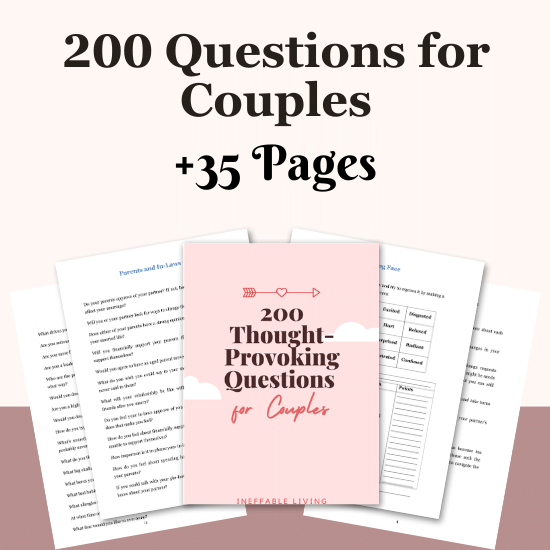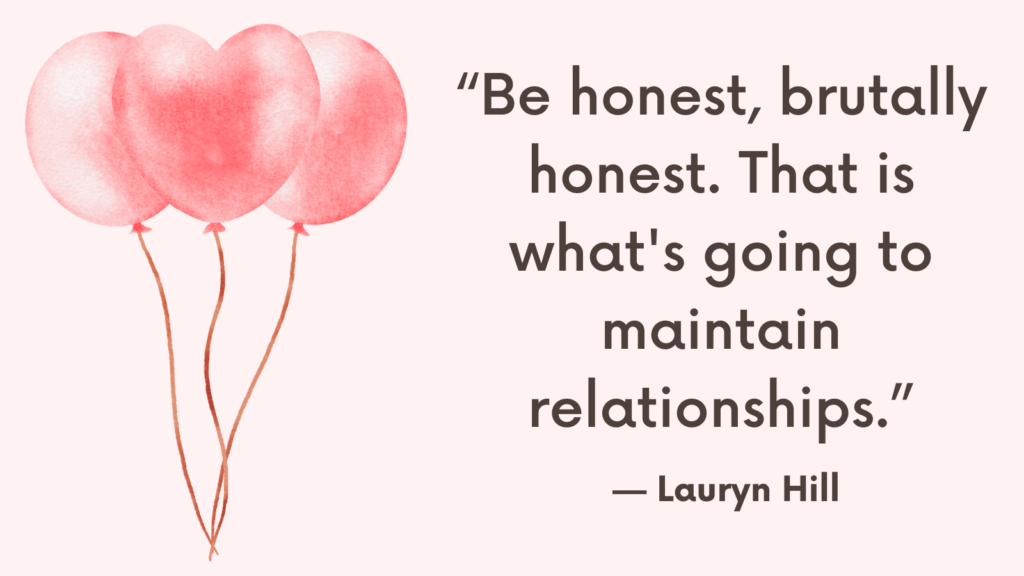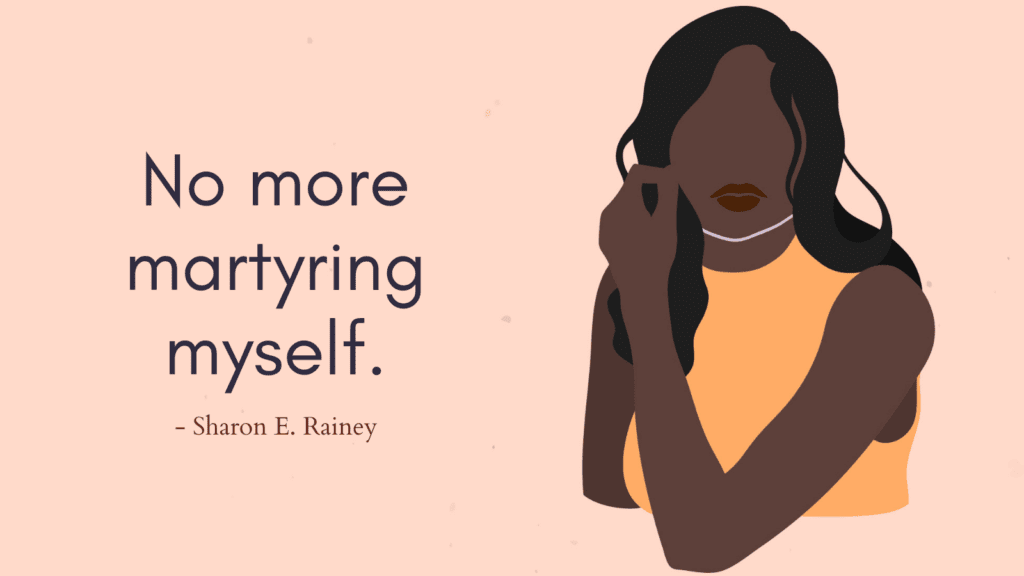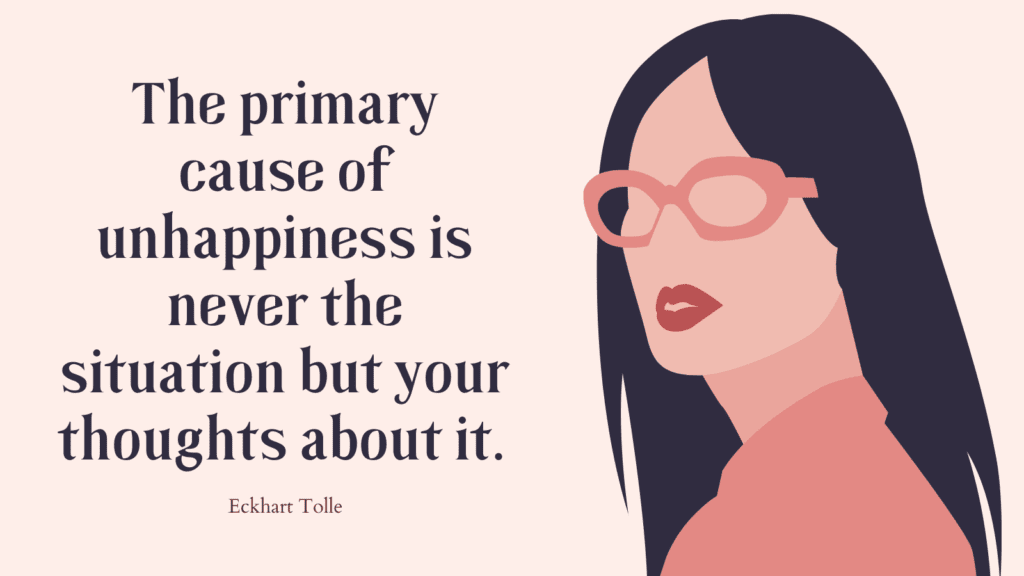This post contains a list of vulnerable questions to ask your partner to strengthen your relationship.
Why Cultivate Vulnerability In Your Relationship?
Cultivating vulnerability in a relationship can have numerous psychological and emotional benefits
1. Fosters Emotional Intimacy:
When individuals are willing to be vulnerable with each other, it creates a deeper sense of emotional intimacy within the relationship.
Sharing one’s authentic thoughts, fears, and emotions can promote closeness and understanding between partners.
2. Builds Trust:
Expressing vulnerability requires a significant level of trust.
When partners feel safe enough to show their vulnerabilities, it strengthens the foundation of trust in the relationship.
This, in turn, fosters a sense of security and openness between partners.
3. Encourages Authentic Communication:
Vulnerability can lead to honest and open communication.
By being vulnerable, individuals can express their true feelings, needs, and concerns, allowing for more authentic and meaningful conversations within the relationship.
4. Promotes Mutual Support:
Embracing vulnerability creates an environment where partners can support each other through challenging times.
It allows for empathy, understanding, and validation of each other’s experiences, strengthening the bond between partners.
5. Enhances Problem-Solving:
When individuals feel comfortable being vulnerable, they are more likely to address relationship issues openly and collaboratively.
This can lead to more effective problem-solving and conflict resolution within the relationship.
6. Reduces Emotional Distance:
Avoiding vulnerability can lead to emotional distance and a lack of genuine connection.
Embracing vulnerability helps to bridge this gap, bringing partners closer and fostering a sense of companionship and shared experiences.
Related: Best 100 Let’s Get Deep Questions for Couples
Vulnerable Questions To Ask Your Partner
1. What is your most significant childhood memory, and how does it continue to impact you today?
2. Can you share a time when you felt deeply vulnerable and how it affected you?
3. What are your biggest fears about our relationship?
4. How do you typically respond when you feel emotionally overwhelmed?
5. Is there a part of yourself that you feel reluctant to share with me? If so, what is it?
6. Can you describe a time when you felt hurt by someone close to you?
7. What does trust mean to you, and how do you build trust in relationships?
8. Are there past experiences that have made it difficult for you to fully trust others?
9. What are your thoughts and feelings about expressing vulnerability in our relationship?
10. How do you envision us supporting each other during challenging times?
11. What emotions do you find most difficult to talk about or express?
12. Can you recall a moment in your life when you felt truly understood by someone?
Related: Top 10 Emotional Boundaries In Dating You Should Set From The First Date
13. Do you have any concerns about being vulnerable with me? If so, what are they?
14. How do you typically cope with feelings of sadness or disappointment?
15. In what ways do you seek comfort when you’re feeling emotionally vulnerable?
16. What role does empathy play in your closest relationships?
17. Can you share a specific experience that has contributed to your current outlook on love and relationships?
18. Are there aspects of your identity that you struggle to accept or embrace?
19. What thoughts or emotions arise for you when you consider facing difficult challenges?
20. How can I best support you when you’re feeling overwhelmed or anxious?
21. What do you believe are the most important elements of a strong, trusting relationship?
Related: How To Save Your Relationship From A Breakup? 5 Steps To Strengthen Your Relationship
22. Have you experienced moments when you felt deeply misunderstood? If so, can you describe them?
23. What fears or anxieties do you carry from past relationships, and how do they influence you now?
24. Are there specific ways you’d like me to respond when you’re feeling vulnerable or distressed?
25. Can you recall a time when you felt truly supported by someone during a difficult period in your life?
26. How do you navigate feelings of uncertainty or insecurity in our relationship?
27. What are your most significant sources of stress, and how can I help you manage them?
28. How does vulnerability impact your ability to feel connected and secure in a relationship?
29. In what ways can we create a safe space for each other’s vulnerabilities within our relationship?
Related: I Can’t Talk To My Husband without Him Getting Angry: Top 8 Things to Do
30. What are your hopes and concerns about sharing your deepest emotions with me?
31. Can you describe a situation in which you felt hesitant to share your thoughts or feelings with me?
32. How do you typically process feelings of anger, and how can I support you during those times?
33. What makes you feel most heard and understood in our conversations?
34. What personal insecurities or doubts have you carried into our relationship?
35. Are there particular emotional needs you have that you believe may be challenging for me to meet?
36. What brings you the most comfort when you’re feeling emotionally exposed or vulnerable?
37. How do you define emotional intimacy, and what role does it play in our relationship?
38. Are there ways you wish to deepen our emotional connection that we haven’t explored yet?
39. Can you recall a time when someone’s vulnerability had a profound impact on you?
40. What do you believe are the most effective ways for us to navigate disagreements or conflicts while maintaining emotional closeness?
Related: Emotional Intimacy Test (+13 Tips On How To Increase Emotional Intimacy In A Relationship?)
41. How does your understanding of vulnerability align with your experiences in previous relationships?
42. What aspects of our relationship do you feel require the most emotional vulnerability and honesty?
43. How do you typically respond when you sense emotional distance between us?
44. What types of support or reassurance do you find most comforting during challenging times?
45. Are there particular topics or emotions you wish we could discuss more openly and honestly?
46. What are your hopes and concerns about exploring deeper emotional connections in our relationship?
47. Can you recall a time when you felt truly seen and accepted for who you are?
48. In what ways can we prioritize emotional connection and vulnerability within our everyday interactions?
49. How do you envision us supporting each other in addressing unresolved emotional wounds or past traumas?
50. What are your aspirations for the emotional depth and closeness of our relationship, and how can we work together to achieve them?
Approaching these questions with sensitivity and compassion can lead to meaningful and constructive conversations that enhance emotional intimacy and connection within your relationship.
Related: Top 7 Early Signs of a Highly Compatible Relationship

Conclusion
Cultivating vulnerability in a relationship can lead to deeper emotional connections, increased trust, and a more fulfilling partnership.



